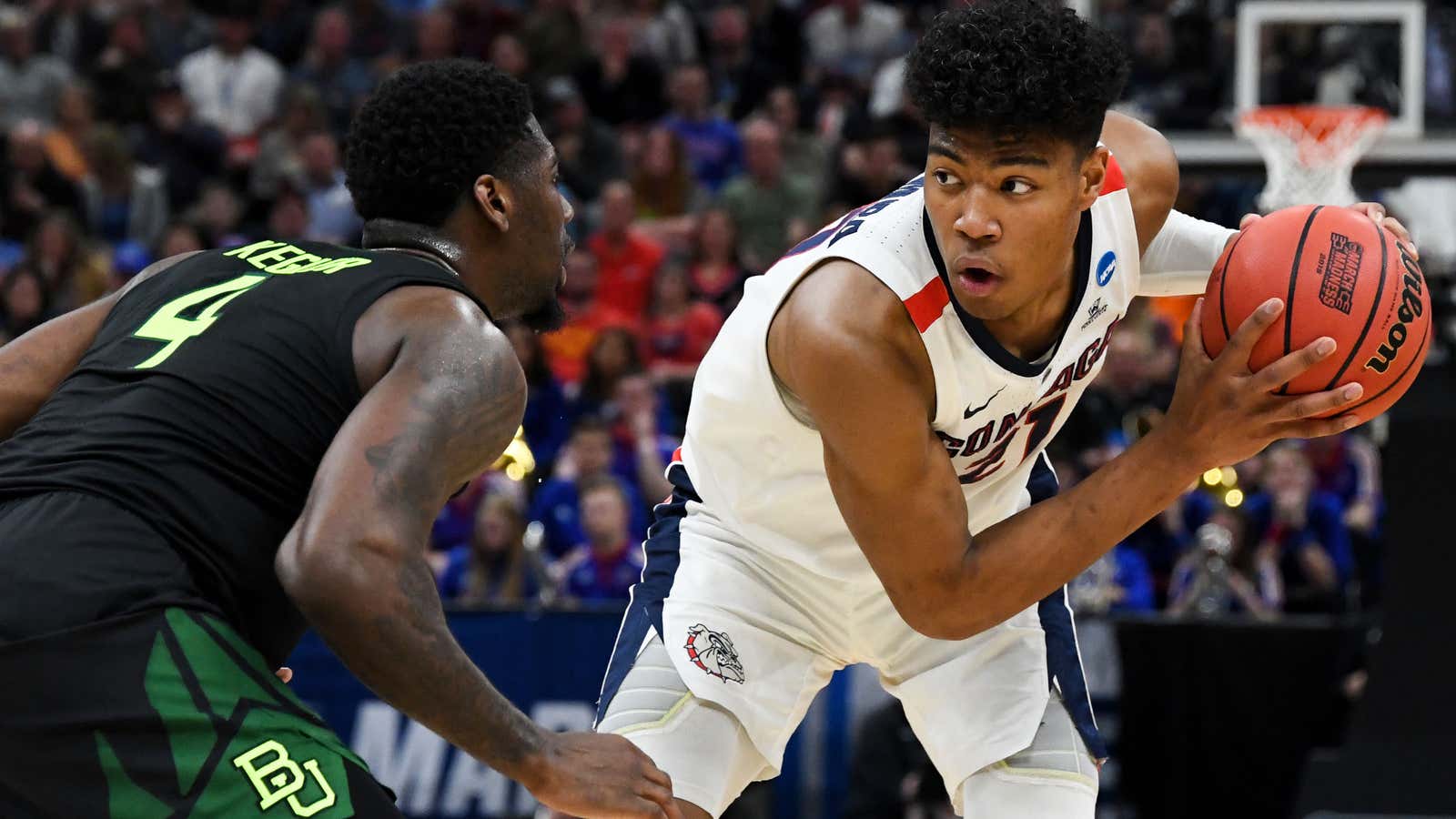The 2019 NBA Draft took place last night (June 20) at Barclays Center in New York. Dozens of young men from across the world finally learned which NBA teams they will join and where they will spend the formative years of their basketball careers.
With the No. 9 pick, the Washington Wizards selected Rui Hachimura, the first Japanese-born player ever chosen in the first round. When he suits up for an NBA game, Hachimura—whose mother is Japansese and whose father is from Benin, in west Africa—will become just the fourth person of Japanese descent to play in the league.
Japanese players are a rarity, but they hold an important place in NBA history. Wat Misaka, a Japanese-American man, became the league’s first non-white player when he joined the New York Knicks in 1947. Back then, the Knicks were actually in the Basketball Association of America—an NBA predecessor. (African American players didn’t join the NBA until 1950.) The 5-foot-7 Misaka played three games before he was cut from the roster.
Hachimura is the latest of a new generation of international players that are helping lift the NBA and basketball to a vast new audience. While European players have dotted NBA rosters for years, in the last decade there has been a growing influx of players from around the globe. The world champion Toronto Raptors often started two players from Africa (Pascal Siakam from Cameroon and Serge Ibaka from the Congo) while getting significant contributions from players from Spain, Lithuania, and the UK. This year, the two most significant individual NBA awards—Most Valuable Player and Rookie of the Year—may go to Giannis Antetokounmpo, a Greek of Nigerian descent, and the Slovenian Luka Doncic, respectively.
Over the years, a handful of other Japanese players have appeared on NBA teams, with negligible impact on the league, but none of these men possesses Hachimura’s skill—he starred last year at Gonzaga University—or his complex identity. As a half-Japanese, half-Beninese individual, Hachimura hopes to become a role model for “blackenese” children, he told The Japan Times.
He also realizes what his career could mean for basketball in his homeland. “It’s big for Japan because we’ve never really had a player like me … playing basketball in the NBA,” said Hachimura. “It means a lot for me, my family, Japanese basketball — the whole country.”
Sports economist Mark Nagel also recognizes Hachimura’s preeminence. “He’s a great player, and in a lot of ways, he’s the first player Japan has really had that’s really, really good,” Nagel told The Japan Times. “You’re going to see more and more kids saying, ‘I want to follow the NBA. I want to follow Hachimura. I want to play basketball.’”
Nagel predicted that merchandise sales for Hachimura’s new team (the Wizards) might spike in Japan.
As the NBA’s profile grows in Japan, Hachimura could soon become a national star. Twenty-three Japanese media outlets attended the NBA Draft, and prior to being drafted, Hachimura signed an endorsement deal with Nissin, the Japanese company behind Cup Noodles.
Indeed, Hachimura may quickly become to Japanese fans what Bucks’ star Antetokounmpo is to Greek fans, and the timing couldn’t be better for catching the attention of fans in Japan. Though the Wizards won’t be playing, the NBA has two preseason games scheduled at Japan’s Saitama Super Arena in October.
